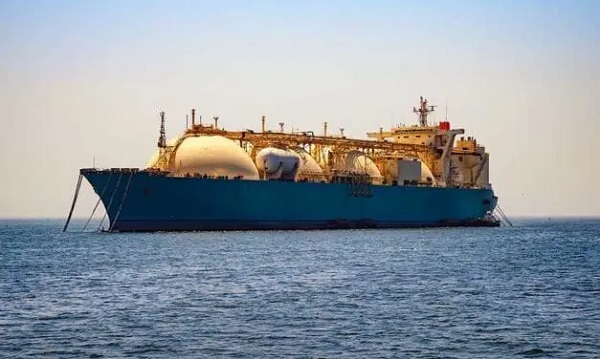Alberta
UCP MLA rips party leadership for dining together while small businesses challenged

From the Facebook page of Angela Pitt, UCP MLA for Airdrie East
Alberta
Alberta Education negotiations update: Minister Horner

President of Treasury Board and Minister of Finance Nate Horner issued the following statement about the ongoing negotiations with TEBA and the ATA:
“After announcing its intention to strike last week, the ATA provided its members with a document titled ‘Talking Points’ for teachers to use when speaking to parents and students about the current bargaining situation.
“The document falsely claims that the Teachers’ Employer Bargaining Association (TEBA) does not have the mandate to ‘negotiate on important issues such as class complexity, class size, support for students.’
“There are also other statements in the document that are misleading and confusing for parents, teachers and most importantly our kids, who are explicitly targeted by these communications.
“To be clear, the only item outstanding between the ATA and TEBA for a new contract is the union’s additional salary demands.
“TEBA’s most recent offer to the ATA included a guarantee to hire 3,000 more teachers over the next three years at a cost of about three-quarters of a billion dollars. This is what the ATA asked for in its previous offer and government’s response met that request. The parties are no longer disputing negotiations on that point.
“The current offer provides a salary increase of at least 12 per cent over four years with more than 95 per cent of teachers receiving more through a market adjustment, and would result in the best deal for teachers in all of Western Canada.
“The information in the ATA document is inaccurate. It intentionally misinforms the public, parents and students. TEBA has been left with no choice but to launch a legal challenge. The Alberta Labour Relations Board received our complaint today, asking the ATA and its president Jason Schilling to immediately retract their false claims and to stop using Alberta’s students and families for leverage in a bargaining dispute.
“The ATA’s leadership and communications strategy targeting families and children with false and misleading claims raises serious ethical concerns. The government must now correct the false narrative the ATA has created.
“I look forward to a speedy resolution of this complaint with the Labour Relations Board. When we have our resolution, we will consider next steps.”
Alberta
Break the Fences, Keep the Frontier

Note: This post was written from notes prepared for a panel at the Canada Strong and Free Conference in Calgary on Sept 6. I am grateful for the invitation and the opportunity to explore solutions to recognized interprovincial barriers and push further beyond.
Haultain’s Substack is a reader-supported publication.
To receive new posts and support our work, please consider becoming a free or paid subscriber.
Try it out.
Alberta is the number one destination for Canadians seeking a better life. In the last 5 years, 1 of 3 Canadians moving out of their provinces seeking a better life have come to Alberta. People come to Alberta to escape stagnant wages, unaffordable housing, and the bureaucratic chokeholds of central Canada. They come for work, for opportunity, and for the chance to get ahead. Alberta doesn’t just have oil and gas; it has policies and an entrepreneurial culture that reward hard work. (Every province, except for PEI, has hydrocarbon resources, but most chose not to exploit them). That’s why the province often draws more people than it loses.
But Alberta cannot assume it will always stay ahead. Prosperity, like liberty, is not automatic, and it can vanish if Albertans get complacent. To remain the country’s economic frontier, Alberta must keep moving. That means tearing down the barriers to trade and commerce we still have and fighting the new ones Ottawa and other provinces are busy inventing.
The costs of standing still are enormous. Economists estimate internal trade barriers drain Canada of up to $130 billion a year, as much as seven percent of GDP, a fraction of what the Trump tariffs would inflict. For Alberta alone, even a ten percent reduction in interprovincial barriers would be worth $7.3 billion annually. And when Quebec blocked the Energy East pipeline, Alberta lost the chance to ship crude worth as much as $15 billion a year — roughly one-fifth of its economy. That isn’t theory; that is lost paycheques, foregone tax revenue, and hospitals and schools that never got funded.
Alberta has worked to make itself freer than most provinces. Liquor was privatized decades ago—Ditto for property registries. The New West Partnership has opened labour mobility and procurement between Alberta, Saskatchewan, Manitoba and B.C. Alberta imposes no cultural or linguistic tests on newcomers. No PST. These are the reasons people come here — because it’s easier to find work, to start a business, to access pristine natural environments, to raise your children, and to get on with your life. Less bureaucracy and fewer people telling you what to do and how to live.
But there are still cracks in the foundation. Alberta’s liquor market is open on the retail side, but still congested at the warehouse level due to the AGLC monopoly. Professional guilds in law, teaching, and health care slow down credential recognition. Public procurement often tilts local in ways that make no sense. And like every province, Alberta still bows to Ottawa’s telecommunications rules, the banking oligopoly, the dairy and poultry cartels (supply management), even though it benefits Quebec farmers and hurts Alberta’s. These barriers cost real money and serve no useful purpose.
If those are the old barriers, new ones are emerging. The most notorious new barrier isn’t new at all. This is the recently resurrected protectionist reflex in the RoC. For a century and a half, Canadians have built a culture that is contrary to the dream of their founding fathers to have open trade within the country. Canadians like to mock Donald Trump’s tariffs, but their instincts are no different. When Trump tariffed Canadian steel, Ottawa’s immediate answer was “We’ll buy Canadian” as retaliation. The elbows-up, “buy local” campaigns are no different from the commercial nationalism Trump is using. And the “buy local” impetus precedes Trump. They prop up the cartels and marketing boards, the oligopolistic giants in telecoms, banking, groceries, and construction. Such reflexes are not based on free market ideas.
What makes this 21st-century mercantilism sting even more is the lack of any real appetite in Ottawa to defend free trade. When Mark Carney announced he would “help” canola farmers, it was a double insult. First, it signalled that in the Prime Minister’s Office, there is no courage to fight for open markets abroad — subsidies at home are easier than complicated negotiations. Second, those subsidies are no gift: they are paid for by the very farmers they are supposed to help, through taxes collected in Saskatchewan and Alberta, among others, laundered through Ottawa’s bureaucracy, and handed back with a smile. This is Canada’s oligopoly culture in miniature: no defence of free markets, more subsidies to placate, and more Ottawa bureaucrats to process the paperwork. All of these come at a price. Ottawa money is never free money.
And the irony deepens. Carney himself promised that interprovincial barriers would be gone by July 1, 2025. He did not deliver. And his latest announcement of a new “process” to expedite infrastructure risks does precisely the opposite — adding new layers of federal meddling, vetoes and Ottawa bureaucrats into what should be provincial decisions.
Haultain Research is a reader-supported publication.
If you enjoy our work and would like to support us and see more of it, please share our posts
and consider becoming a paid subscriber.
The enforcement of Diversity, Equity, and Inclusion (DEI) initiatives, along with the surrounding culture, is a recent development. What began as workplace training has evolved into a mechanism for bureaucrats and gatekeepers to extend their authority. In some regions, such as Ontario, DEI mandates have been codified into law, forcing individuals to think and act in ways that are not of their own choosing.
This kind of identitarian enforcement saps productivity, creates “bullsh*t jobs” focused on compliance, and categorizes people instead of promoting unity among them. Most concerning is the way it restricts mobility for workers who don’t fit ideological criteria, punishing those who refuse to conform. This system creates opportunities only for a select, tiny class of individuals.
Alberta has a distinct advantage in this context, as it has not fully embraced the DEI agenda—apart from federal agencies and affiliated organizations, sadly including our own ATB. However, it must remain vigilant against the encroaching imposition of these practices.
The third significant challenge we face on the horizon is “debanking.” In 2022, we witnessed how swiftly Ottawa could order banks to freeze accounts, and how readily banks complied. Since then, federal regulators have been extending their influence under the guise of anti-money laundering regulations. The reality is straightforward: industries or individuals that federal governments deem undesirable can be cut off from financial services. For Alberta, with its energy sector labelled as a threat to the planet, this poses a considerable risk. Entire industries—or even individuals who consume “too much” energy—could soon find themselves excluded from the marketplace by radicals in the PMO.
David Suzuki once called for criminally charging folks he considered environmental offenders, and the NDP has expressed a preference for criminalizing support for the oil and gas sector (The NDP, ostensible fond of books in schools and free speech, also wants to criminalize asking questions about non-existent mass graves and the fictional narrative of genocide in Canada). A free economy loses its meaning if citizens can be excluded from it through government decrees. Alberta must protect its residents by establishing ATB as a fortress for banking, addressing any divisive tendencies, and enshrining access to banking as a civil right. Alberta needs to protect its citizens when those federally chartered banks act as enforcers for Ottawa.
So what does moving forward look like? Alberta has a strong culture of enterprise, but it cannot rest on its laurels. Unless it works to keep ahead, others will eventually catch up. Alberta must double down on being the most desirable place in Canada to live and work. That means bold and greater transformational reforms.
Breaking the cartel-like influence of professional regulators—such as teachers, lawyers, doctors, and nurses—who have transformed their organizations into barriers is crucial. These groups often prosecute their members to enforce ideological beliefs that most Albertans do not support.
Additionally, we need to ensure that access to banking is protected in provincial law, regulating credit unions so that no Albertan can be denied banking services for political reasons. We should also consider breaking up large municipalities to encourage smaller communities to compete for residents and businesses.
Ending the equalization payments and replacing them with a Goods and Services Tax (GST) transfer to Ottawa is necessary to ensure that Alberta’s wealth benefits Albertans directly. Healthcare delivery must be reformed so that patients receive timely services and genuine choices.
Furthermore, we should deregulate trucking and housing construction to make life more affordable for families. Finally, we must tackle public service unions that operate like political monopolies, using examples from small towns like Coaldale to demonstrate how reform can begin at the grassroots level.
Canada advocates for free trade but often behaves like a medieval guild. Alberta has demonstrated that a more liberated approach is viable, but the province must continue to leverage its advantages. This involves resisting cartels, challenging the banks, dismantling outdated barriers, and preventing the emergence of new ones before they become too imposing.
Alberta has always been a frontier — a place where people come to build, take risks, and prosper. Frontiers are not maintained by standing still; they thrive by moving forward. If Alberta continues to push ahead, it can remain the engine of prosperity and the most desirable place to live and work. However, if it becomes complacent, it risks falling behind, becoming weaker, and Ottawa will be more than willing to take advantage of that.
The choice is simple: Alberta can either be fenced in by cartels and bureaucrats, or it can break the fences and keep the frontier open. That is the task, and it is one worthy of Alberta’s spirit.
For the full experience, and to help us bring you more quality research and commentary, please upgrade your subscription.
-

 Crime2 days ago
Crime2 days agoDown the Charlie Kirk Murder Rabbit Hole
-
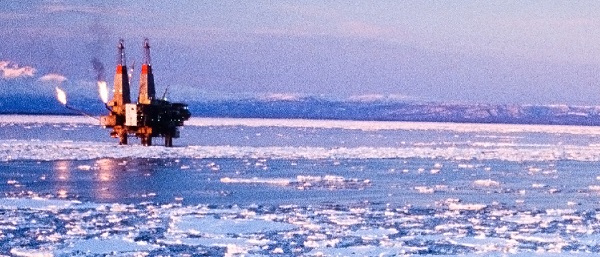
 Energy2 days ago
Energy2 days agoTrump Admin Torpedoing Biden’s Oil And Gas Crackdown
-

 Business2 days ago
Business2 days agoIt’s time to finally free the beer
-
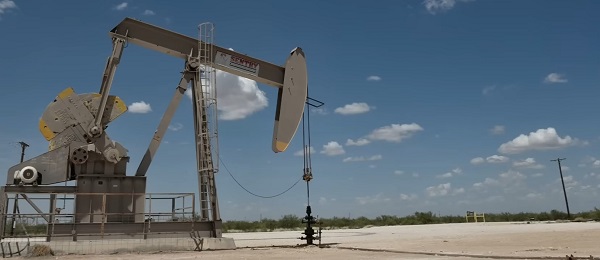
 Energy2 days ago
Energy2 days agoThe IEA’s Peak Oil Fever Dream Looks To Be In Full Collapse
-

 Business2 days ago
Business2 days agoCarney Admits Deficit Will Top $61.9 Billion, Unveils New Housing Bureaucracy
-
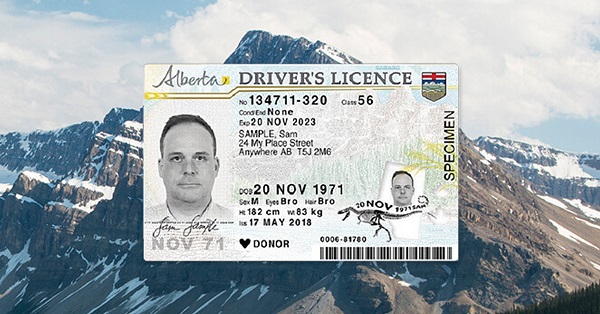
 Alberta1 day ago
Alberta1 day agoAlberta first to add citizenship to licenses
-
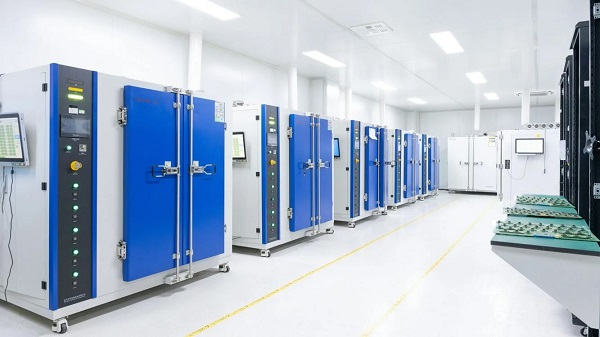
 Artificial Intelligence2 days ago
Artificial Intelligence2 days agoWhat are data centers and why do they matter?
-

 Business24 hours ago
Business24 hours agoCarney government’s housing GST rebate doesn’t go far enough










